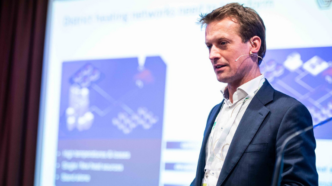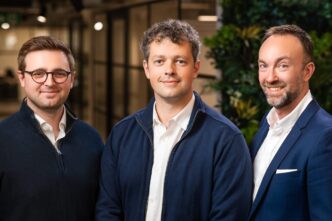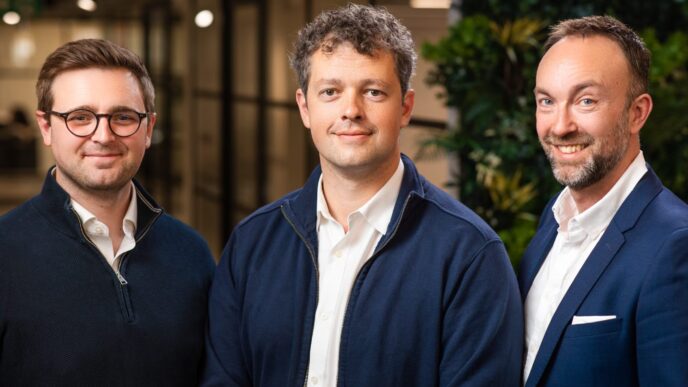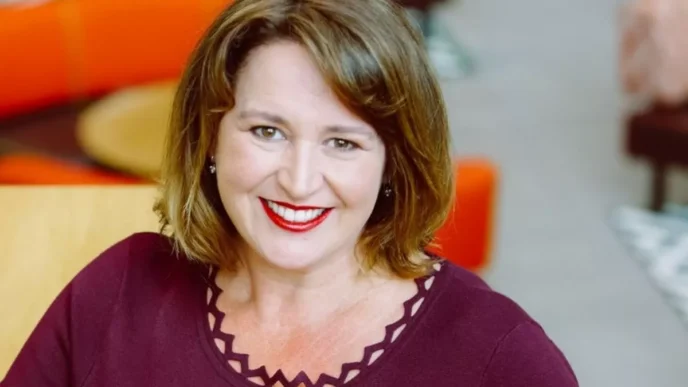Netherlands-based startup Gradyent has raised €28 million in growth funding to scale its AI-driven Digital Twin platform. Aimed at decarbonising heating and cooling networks. The oversubscribed round was led by Blue Earth Capital, with participation from SEB Greentech Venture Capital, Capricorn Partners, Eneco Ventures, Helen Ventures, and Energiiq. This brings Gradyent’s total funding to more than €39 million since launching in 2019.
Heating and cooling systems currently consume close to 50% of global final energy. Yet they remain among the least efficient and most carbon-intensive parts of the energy mix. Gradyent wants to change that. Its platform helps energy providers optimise performance, reduce CO₂ emissions by up to 10%, and cut capital expenditures by as much as 20%.
Founded in Rotterdam by Hervé Huisman, Robert Vrancken, and Freek Smelt. Gradyent combines real-time sensor data, physics-based modeling, and AI into a Digital Twin for sustainable heating networks. The technology creates a live digital replica of a city’s entire heating or cooling grid. Making it possible to simulate and optimise energy flows under varying conditions.
Traditional systems are no longer enough to manage the rising complexity of district heating. Especially as networks integrate electricity, heating, cooling, and CO₂ management. Gradyent’s platform steps in to make smarter, faster decisions possible.
CEO Hervé Huisman said the shift toward sector-coupled energy systems requires new tools. “Our platform enables companies to coordinate generation and distribution across multiple energy carriers while keeping costs low and reliability high. That flexibility is critical to building low-carbon, future-proof heating systems.”
Gradyent’s clients include over 35 cities and major energy players such as Shell, Veolia, and Helen. Its technology has already led to major efficiency gains. In Helsinki, Helen used Gradyent’s platform to shut down a coal plant—cutting emissions from heat production by 40%. In the Netherlands, Uniper lowered heat losses by reducing operating temperatures across its network while maintaining performance. And in Poland, Veolia uses Gradyent’s AI to manage daily dispatch across its district heating operations in Łódź and Poznań.
The company is also working with Shell to digitise its industrial steam grid at the Shell Energy and Chemicals Park in Rotterdam. This pilot supports Shell’s goal of reaching net zero scope 1 and 2 emissions by 2050.
With demand for flexible assets like heat pumps and e-boilers expected to surge tenfold by 2030, Gradyent is preparing for broader global expansion. The new funding will support growth in new regions, particularly beyond Europe, while accelerating product development and team expansion.
Claude Kamga, Director at Blue Earth Capital, said, “Gradyent is transforming how we think about decarbonising heat. Their platform delivers real impact by lowering emissions and costs, and it fits perfectly with our mission to back technologies that enable a faster energy transition.”
Mikko Huumo, Investment Manager at SEB Greentech, added, “The complexity of managing next-gen heating grids requires AI-driven tools like Gradyent’s Digital Twin. It’s a perfectly timed solution that can take advantage of volatile energy pricing while ensuring affordable, low-carbon heat.”
Gradyent’s momentum signals a broader shift in how cities and utilities will manage thermal energy in the years ahead. With AI and Digital Twin tech at the core, the company is offering a path toward cleaner, more efficient heating infrastructure—just as the world urgently needs it.













